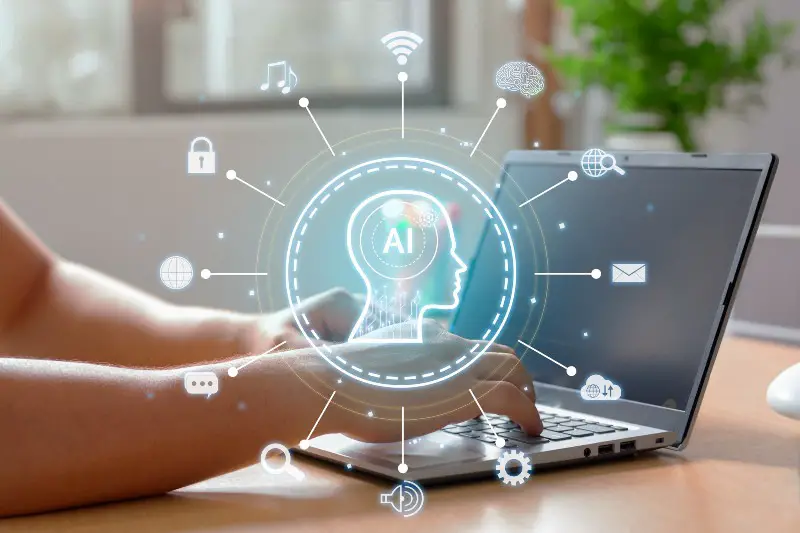Introduction
In an era where technology continually reshapes our world, the term ‘AI Horizon’ symbolizes the limitless potential of Artificial Intelligence (AI). This blog post aims to explore the intricate relationship between AI and various sectors like healthcare, tech enthusiasts, and ethical AI. We will delve into the myths and facts surrounding these areas, answer frequently asked questions, provide practical tips and tricks, and present Google snippets and definitions to enhance our understanding of AI. Additionally, we’ll uncover some fascinating facts in our “did you know” section.
Healthcare and AI
Myths vs. Facts
Myth 1: AI will replace human doctors. Fact: AI is designed to augment, not replace, human healthcare professionals. It assists in diagnosis and treatment plans but cannot replicate the empathy and judgment of a human doctor.
Myth 2: AI in healthcare is a distant future concept. Fact: AI is already being used in various healthcare applications, from diagnostic tools to personalized medicine, improving patient care and operational efficiency.
Myth 3: AI healthcare solutions are infallible. Fact: While AI can process vast amounts of data more quickly than humans, it is not immune to errors and requires continual oversight and improvement.
FAQ
How is AI transforming healthcare? AI in healthcare is revolutionizing patient care through predictive analytics, personalized medicine, and robotic surgeries. It processes large datasets to identify patterns and make predictions, enhancing diagnosis and treatment plans.
Can AI improve patient outcomes? Yes, AI can significantly improve patient outcomes by providing more accurate diagnoses, efficient treatment plans, and personalized healthcare strategies. It also reduces the likelihood of human error.
Is patient data safe with AI technologies? While AI technologies offer advanced data analysis capabilities, ensuring data privacy and security is crucial. Healthcare providers must adhere to strict data protection regulations.
Will AI make healthcare more accessible? AI has the potential to make healthcare more accessible by enabling remote monitoring and telemedicine, especially in underserved areas.
How does AI impact medical research? AI accelerates medical research by analyzing complex biological data, leading to faster drug development and a better understanding of diseases.
Practical Tips and Tricks
- Stay Informed: Regularly update your knowledge about AI advancements in healthcare.
- Data Quality: Ensure high-quality, diverse data for AI algorithms to avoid biases.
- Ethical Considerations: Always consider the ethical implications of using AI in healthcare.
- Collaboration: Encourage collaboration between AI experts and healthcare professionals.
- Patient Engagement: Educate patients about AI tools and involve them in decision-making.
Google Snippets
- AI in Healthcare: “AI is transforming healthcare by enhancing diagnosis accuracy and patient care efficiency.”
- Machine Learning in Medicine: “Machine learning algorithms are increasingly used for predictive analytics in healthcare.”
- Data Security in AI Healthcare: “Ensuring data privacy is paramount in the integration of AI in healthcare systems.”
Artificial Intelligence Meaning
- Oxford Languages: “The theory and development of computer systems able to perform tasks that normally require human intelligence.”
- Merriam-Webster: “A branch of computer science dealing with the simulation of intelligent behavior in computers.”
- Cambridge Dictionary: “The study of how to produce machines that have some of the qualities that the human mind has, such as the ability to understand language, recognize pictures, solve problems, and learn.”
Did You Know?
- AI algorithms can analyze medical images with greater accuracy than human radiologists in some cases.
- AI-powered wearable devices are being developed to predict potential health issues before they become critical.
- AI is being used to personalize drug dosages, potentially revolutionizing pharmacology.
Conclusion: Embracing the AI Horizon
As we journey through the realms of healthcare, technology, and ethical AI, it becomes evident that the AI Horizon is not just a futuristic concept but a present-day reality shaping our lives. The integration of AI in healthcare is revolutionizing patient care, offering unprecedented accuracy and efficiency. For tech enthusiasts, AI is a field of endless possibilities, pushing the boundaries of innovation and creativity. Ethical considerations in AI remind us of the importance of responsible development and use of technology, ensuring it serves humanity positively.
The myths and facts, FAQs, and practical tips provided in this post aim to demystify AI and encourage informed engagement with this transformative technology. Whether you’re a healthcare professional, a tech enthusiast, or someone interested in the ethical implications of AI, there’s no denying the impact AI has on our world.
As AI continues to evolve, staying informed and adaptable is crucial. The AI Horizon invites us to envision a future where technology and human ingenuity converge, creating a world where the possibilities are as limitless as our imagination. Let’s embrace this journey with curiosity, responsibility, and an unwavering commitment to bettering our world through the wonders of AI.







